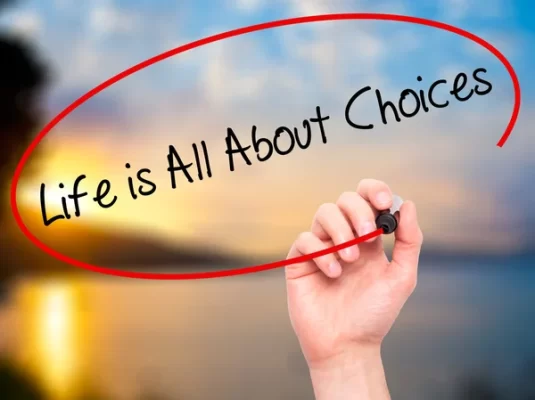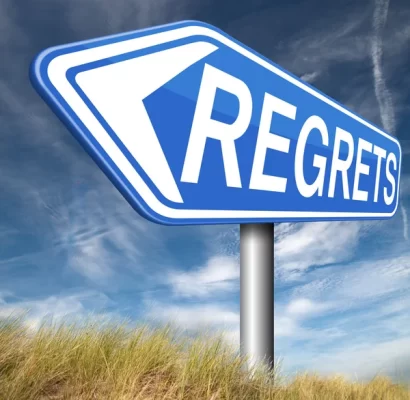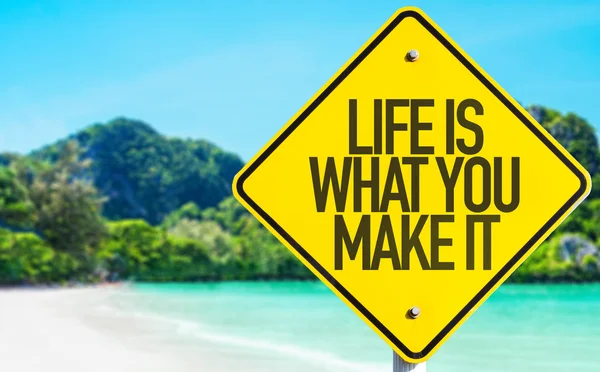“The Past is behind you, the lessons from there are meant to push you ahead and not to pull you back” – Krish quotes
- Do you regret or relish your past decisions?
- Have your past decisions made your life difficult or enjoyable?
- Do your decisions haunt you?
- Do you curse yourself for taking the decisions which have compelled you to live the life you are living?
- Do you live in the past, not in the present?
- Do the decisions taken in the past affect our future?
So, the answer would be: Analyse your decisions!

Indeed, our present is governed by our past decisions, not always but many times. If we are not aware of this fact, we are happy but if we are aware that our present suffering is due to the decisions taken in the past, we suffer more. When it comes to making choices, past decisions may play a surprisingly large role. The traditional view of decision-making is that our choices are guided by what we remember about the outcomes of previous choices we’ve made.
Even if you feel that your past decisions are haunting you and making you suffer, you should not stop decision-making. A time will come when you will make better choices with your decisions. Moreover, you will not regret it in the future if you did not take the decision.
This way you understand the importance of decision-making for the sake of your future and your loved ones.
The importance of decision-making lies in the way it helps you in choosing between various options. Before making a decision, there is a need to gather all available information and weigh its pros and cons. It is crucial to focus on steps that can help in taking the right decisions.

Many times, it is noticed that work-related decisions affect us more because a major part of our lives we spend working. Consistently making good decisions is arguably the most important habit we can develop, especially at work. Our choices affect our health, our safety, our relationships, how we spend our time, and our overall well-being.
If you are an emotional person, your emotions will drive the decisions you make today, and your success may depend upon your ability to understand and interpret them. When an emotion is triggered in your brain, your nervous system responds by creating feelings in your body (what many people refer to as a “gut feeling”) and certain thoughts in your mind. A lot of your decisions are informed by your emotional responses because that is what emotions are designed to do: to appraise and summarize an experience and inform your actions.
If you are a practical person, your decisions are also practical or to put it straight, more direct – fruitful. Right decisions taken in the past shape a successful future but if you are not successful you can put the onus on bad decisions taken in the past. This way we see that decisions taken in the past impact our future a great deal. These are majorly responsible for the kind of life we lead. So, we must take the right decisions at the right time. If we dilly-dally certain critical decisions in our lives, it impacts not only our present but our future too. If you are indecisive about a certain aspect of your life say career or marriage etc. you can take the help of your elders, mentors, or peers. But, don’t entirely depend on their suggestion, use your judgement and evaluate which would work best for you.

For better decision-making, you should become aware of your mental heuristics. Heuristics are mental shortcuts that people use to make quick decisions.
Heuristics can be helpful by:
- Reducing the mental effort, you need to make decisions
- Helping you with problem-solving
- Simplifying complex questions
- Helping you conclude faster
However, heuristics can also lead to cognitive biases. One example is the availability heuristic. You’ll be more likely to make a decision based on information that pops into your mind quickly.
So, how does decision-making help us in everyday life?
Strong decision-making skills are crucial in the risk assessment of decisions. They give us the ability to not only take the various options into account and weigh their pros and cons but also to assess the risk.
A tried & tested measure would be: Talk to yourself like a trusted friend, you will feel so much better. Decision-making would be smoother, particularly when faced with a tough choice, ask yourself, “What would I say to a friend who had this problem?” You’ll likely find the answer comes to you more readily when you’re imagining yourself offering wisdom to someone else.
Talking to yourself like a trusted friend takes some of the emotion out of the equation. It will help you gain some distance from the decision and will allow you to be a little more objective.

It will also help you to be a little kinder to yourself.
While you may be likely to say negative things to yourself like, “This will never work. You can’t do anything right,” there’s a good chance you wouldn’t say that to your friend. Perhaps you’d say something more like, “You’ve got this. I know you can do it,” if you were talking to a friend.
This holds the key to happiness, so be HappyHo!
